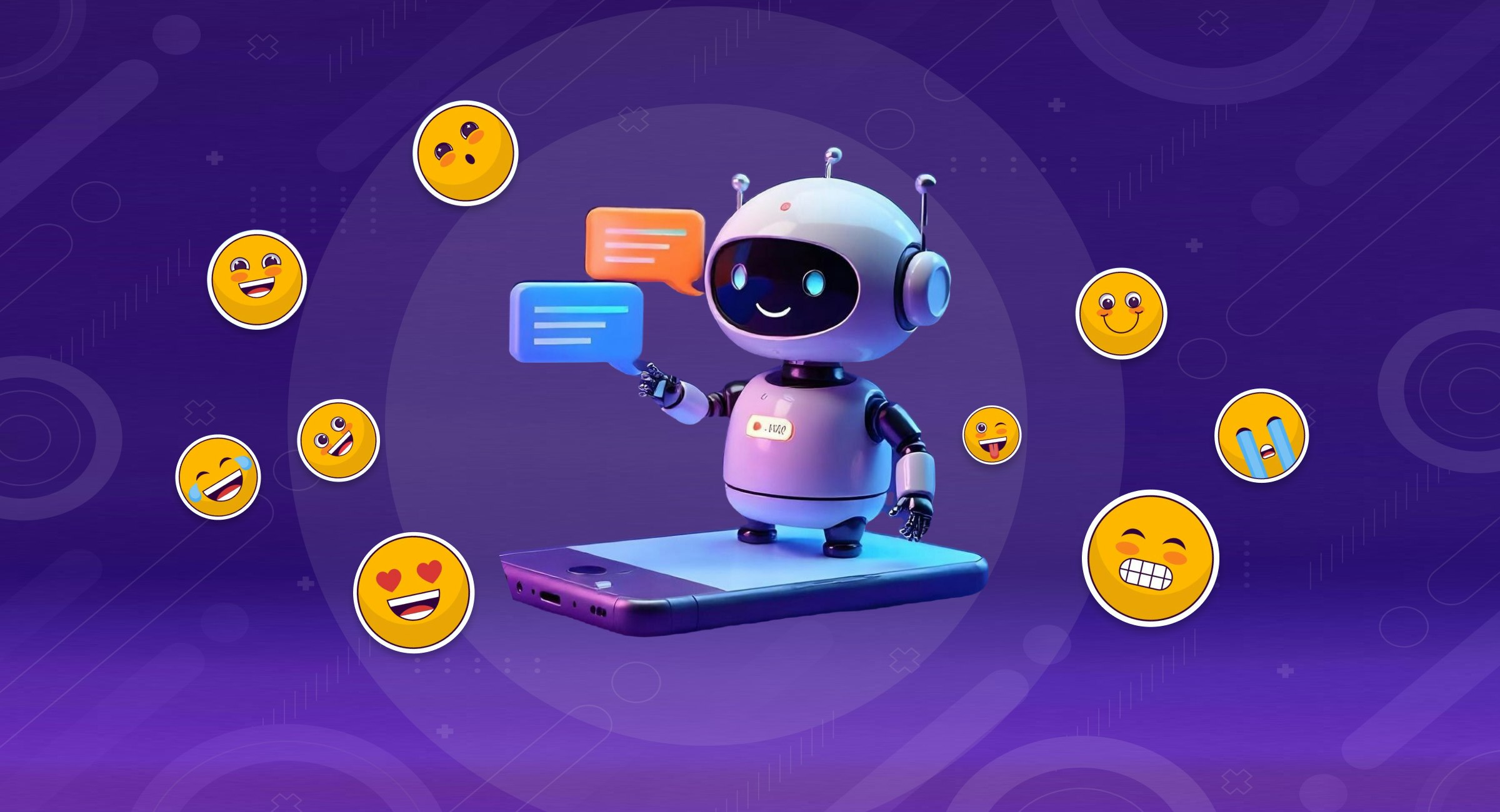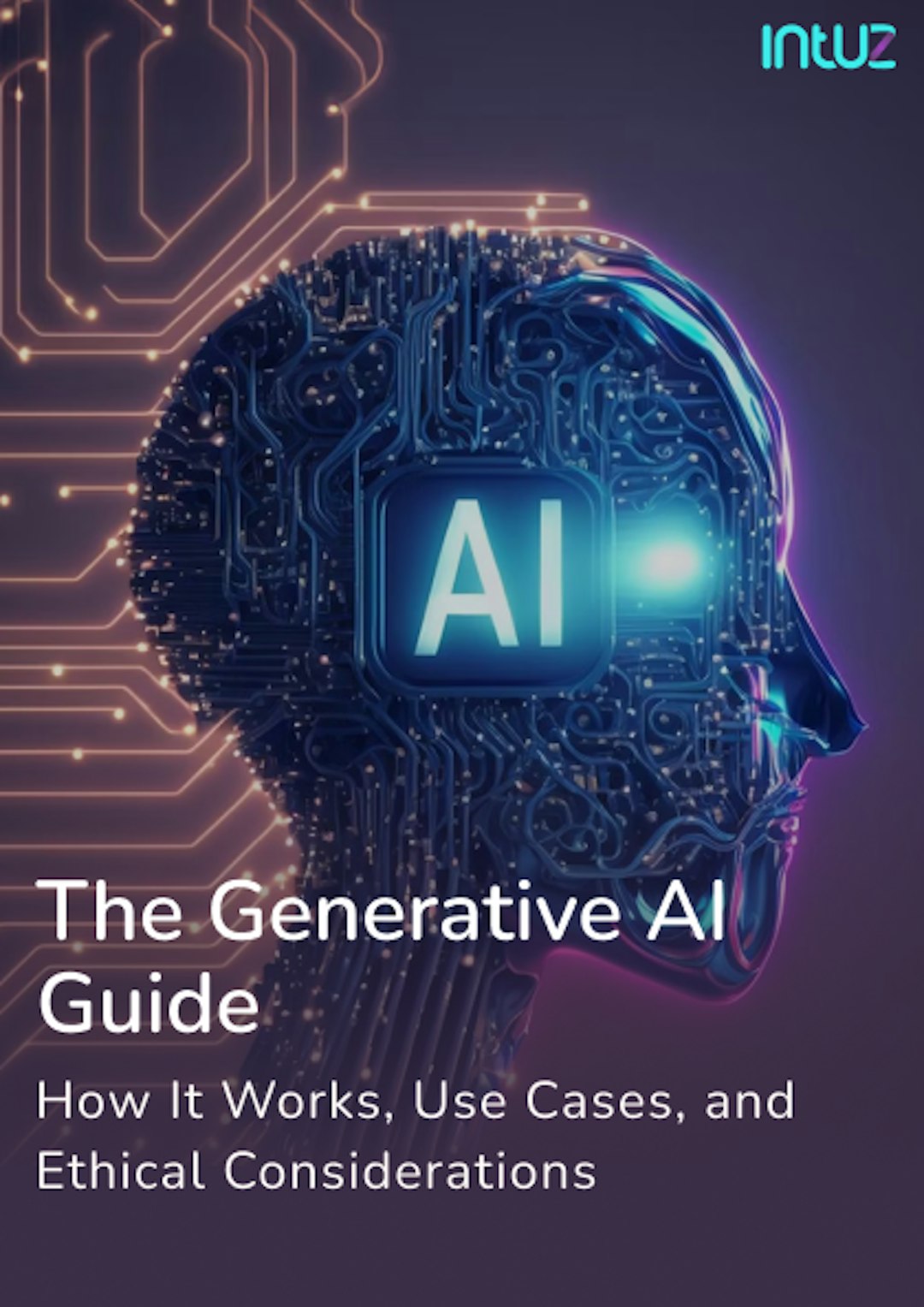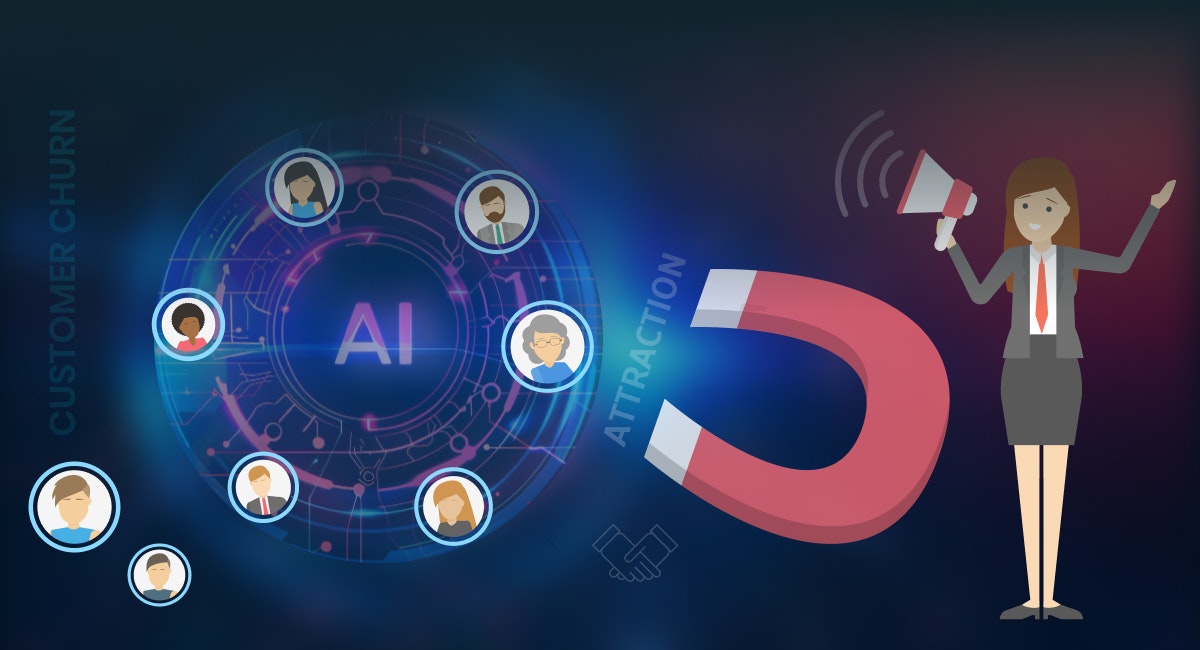Table of Content
Understanding how today’s customers emote and perceive things has never been more critical. That’s because we live in a world where a single LinkedIn post or G2 review can influence public opinion, if not sway it. Knowing your audience inside out is the only way to stay ahead.
But analyzing customer feedback manually? That’s so yesterday’s strategy.
What your SME needs to do is invest in AI-powered sentiment analysis. This will help you decode feedback at scale, uncover hidden buying patterns, and act faster than ever. What’s more, you’ll be able to boost customer satisfaction by 10%-15%.
If you’re intrigued to learn about this technology, you’re in for a treat.
In this blog post, we’ll discuss five applications of AI-powered sentiment analysis for your SME. But first, let’s sort out the basics.
What Is AI-Powered Sentiment Analysis?
Simply put, sentiment analysis is the process of determining whether the feedback received from your customers, in the guise of a social media post, review, or email, carries a positive, negative, or neutral tone. At its core, it infers the emotions behind words.
AI takes this a step further by applying three advanced technologies to sift through the text and also understand its context:
- Machine Learning (ML) algorithms that learn from vast datasets
- Natural Language Processing (NLP) breaks down sentences into grammar, intent, and tone
- Deep learning models that enable the system to grasp sarcasm, slang, or even cultural subtleties, mimicking the human brain
For example, a phrase like “I didn’t love the product” might sound neutral to a basic system, but AI recognizes it as negative because of the nuanced expression. With such innovative insights, you can improve your offerings and provide a better overall service.
5 Key Applications of AI-powered Sentiment Analysis
1. Customer feedback analysis
Your SME gets feedback daily, but manually pulling it from different sources, organizing it, and then analyzing it sounds overwhelming.
With AI-powered sentiment analysis, you can process thousands of reviews in minutes, identifying what customers love, what frustrates them, and what they feel indifferent about. The analysis converts the information into charts and trend lines that are easy to understand.
It can also prioritize the feedback you must take action on quickly. For example, if 200 customers mention your delivery service and 80% are unhappy, you’ll know where to focus. Similarly, if your new product gets consistent praise, you can continue to build on that success.
Let’s assume you’re a restaurant. You’ll have dozens of diners leaving reviews online. Generative AI development services can scan those and highlight recurring themes, like irritation with slow service or love for a popular dessert.
If your signature pasta dish repeatedly garners negative feedback, you might want to discontinue it. Similarly, if everyone enjoys your banoffee pie, you could consider increasing its price to get more bang for your buck.
Engaged customers are more loyal and have more touchpoints with their favorite brands. They also deliver greater value over their lifetime. AI can help you spend less time buried in data and more time making informed decisions that fuel your SME’s longevity.
2. Social media monitoring
Thanks to social media, everyone has a platform. They can say whatever they want to, whenever they want to, and about whoever they want to. It’s natural for your SME to keep tabs on what the pulse is like about you in real-time on Facebook, LinkedIn, Instagram, TikTok, and X.
Therefore, instead of scrolling endlessly and finding posts that mention you, get AI to list insights into customer opinions, potential issues, and even trending topics.
For example, if a LinkedIn post about your product goes viral—positive or negative—AI can flag it immediately. You can respond quickly to amplify the good or address concerns before they escalate. Perform damage control in a timely fashion.
AI also gives you a strategic edge over competitors. You can track sentiment data about other businesses in your industry and identify gaps or opportunities. For instance, if customers are predominately unhappy with a competitor’s pricing, you can adjust yours to attract them.
Imagine you’re a small coffee chain and notice your rival’s pastries get a lot of flak on Instagram. You can use this information to roll out fresh, artisan baked goods, capturing a new audience and increasing your order value.
3. Product development insights
If you’re already developing new products (or features) or curating new services, you can test their effectiveness with focus groups. But this doesn’t always represent customer sentiment accurately, leaving your product team vulnerable to potentially creating something irrelevant.
But custom AI solutions change this story.
For example, during an app’s beta test or pilot launch, it can process early feedback to predict how a broader audience might respond.
If customers say they find it “intuitive,” that’s a positive sentiment. But if they mention “slow loading times” in their reviews, it highlights a negative sentiment. AI sentiment analysis offers a more precise way to understand preferences and pain points.
4. Targeted marketing campaigns
Nowadays, marketing isn’t just restricted to the platforms, posting frequency, or content formats. It’s about how you play with customer emotions. And the good news is you don’t have to be subjective in your strategy.
With AI sentiment analysis, you can segment your audience based on their feelings about you, your products/services, and your campaigns. That way, you can write personalized messages more likely to resonate (and engage) emotionally.
For instance, if AI agent solutions find out that your customers from a younger demographic are excited about your eco-friendly initiatives but the older ones value affordability, you can create content that caters to both.
In another case, if you learn that your audience has started associating your brand with “comfort” after a recent product launch, you could align your social media creatives with this sentiment by designing cozy, feel-good imagery.
You can also use AI to A/B test marketing content. Run two ads: one highlighting your offerings and another showcasing discounts. AI can analyze how customers engage with both posts and tell you what works better in real time.
The result?
You can publish content that understands your audience’s emotional triggers. They’ll be more inclined to follow your journey as an SME and convert into loyal customers—simply because they can relate. This leads to a higher ROI in the long run.
5. Customer support optimization
Loyalty hinges on delivering an exceptional customer experience for any SME. In fact, 75% of people are willing to spend more on a business that simply takes care of them. It’s almost obvious for your customer service team to be at the forefront.
AI-powered sentiment analysis can transform how they function. Let’s assume your SME receives dozens of support emails daily. AI can analyze the sentiment in each ticket and rank them based on urgency.
A frustrated tone like “This is the third time I’ve reported this issue” gets flagged for immediate attention, while less critical queries are queued accordingly. This approach ensures customers with pressing concerns feel heard sooner.
On the other hand, AI chatbots can be equipped with sentiment analysis for smarter interactions. If, for instance, they detect rising frustration—like repeated use of “not working”—they can escalate the issue to a human agent immediately.
Marriott International, a hotel chain, heavily uses chatbots on its corporate booking site. By identifying common themes and sentiments in reviews, it quickly spots areas for improvement, such as room cleanliness, staff friendliness, or amenity quality.
Another win is proactive problem-solving. For instance, AI might detect a spike in negative sentiment about a new feature. Armed with this insight, your team can proactively apologize and fix the issue before more customers complain.
Explore Our Custom AI Solutions!
Let's ExploreIn Conclusion
There’s no doubt your customers are constantly talking. But the real question is—are you listening? AI sentiment analysis can help you do that and more, giving you a real chance to stand out in an oversaturated market.
If you need help implementing it in your SMEs, you can rely on Intuz, a leading AI development company. When you partner with us, you don’t just get technical expertise but also gain a trusted team truly rooting for you to succeed.
Just book a free consultation with our expert AI team today.
Meet us for an hour for free, and we’ll discuss your SME needs in detail. We’ll also share a high-level strategy roadmap to show you the value AI can create for your business.






